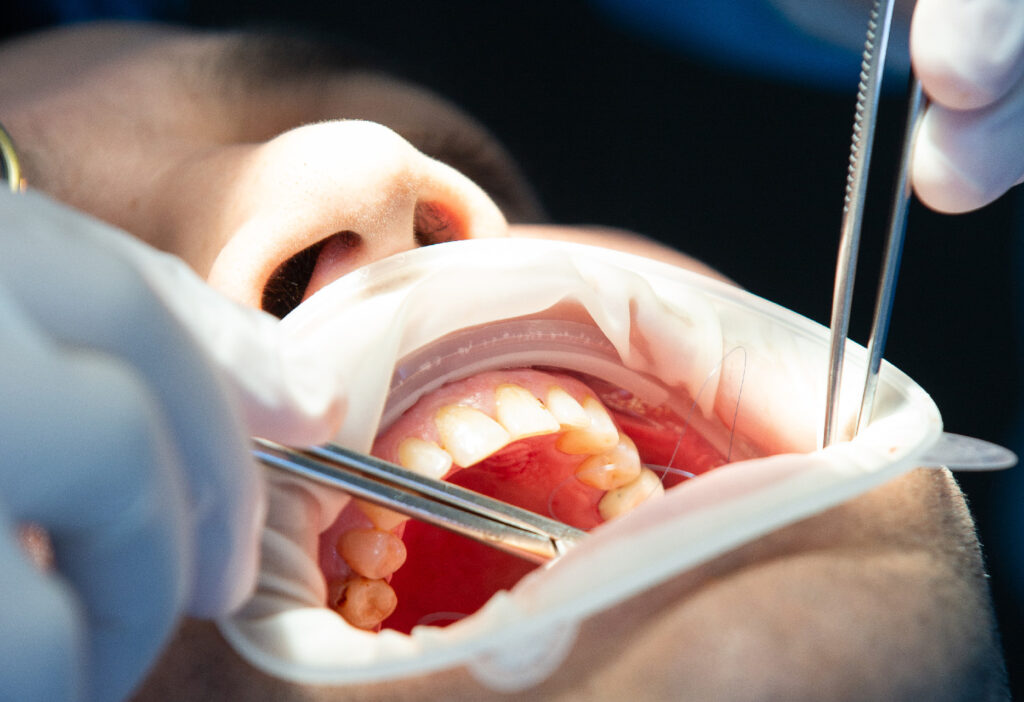Oral health plays a crucial role in the overall health of the body. Scientific research has shown that oral diseases can influence the onset and progression of systemic diseases. In this article, we will explore the evidence-based relationship between diseases of the oral cavity and diseases in other parts of the body, highlighting the importance of maintaining good oral health to promote overall well-being.
The mouth is not just an isolated part of the body; it is connected to broader systems and can affect overall health. Scientific studies have revealed that oral diseases can have a significant impact on other parts of the body. In this perspective, we will analyze the relationship between oral diseases and systemic diseases, supported by scientific evidence, highlighting the importance of maintaining optimal oral health for comprehensive well-being.
The Interrelationship between Oral Diseases and Systemic Diseases:
- Cardiovascular Diseases: Periodontitis, a chronic inflammatory disease of the gums, has been associated with an increased risk of cardiovascular diseases, such as coronary heart disease, myocardial infarction, and hypertension. Chronic inflammation in the gums can trigger systemic inflammatory responses that contribute to the development and progression of heart disease.
- Diabetes: Diabetes and periodontal disease are closely related. Poorly controlled diabetes can increase the risk of developing periodontal disease. Periodontitis, in turn, can make glycemic control more difficult, making diabetes worse. Proper treatment of periodontal disease can help improve glucose control in people with diabetes.
- Respiratory Diseases: Oral infections, such as gum disease and tooth decay, can increase the risk of developing respiratory diseases, including pneumonia and exacerbations of chronic lung diseases such as asthma and chronic obstructive pulmonary disease (COPD). Bacteria present in the mouth can be inhaled and cause respiratory infections.
- Pregnancy Complications: Periodontal disease during pregnancy has been associated with an increased risk of preterm birth, low birth weight, and preeclampsia. Oral inflammation and bacteria can trigger systemic inflammatory responses that affect maternal health and fetal development during pregnancy.
- Neurodegenerative Diseases: Some research has suggested a possible connection between periodontal disease and neurodegenerative diseases, such as Alzheimer’s disease and cognitive decline. It has been proposed that chronic inflammation and bacteria present in periodontal disease may trigger an inflammatory response in the brain, contributing to the development and progression of these diseases.
- Digestive System Diseases: Poor oral health, including the presence of gum disease and tooth decay, has been associated with an increased risk of digestive system diseases, such as inflammatory bowel disease and gastroesophageal reflux disease. Chronic inflammation and bacteria present in the mouth can affect the intestinal microbiota and trigger inflammatory processes in the gastrointestinal tract.
- Kidney Diseases: Periodontal disease has been linked to an increased risk of chronic kidney disease and progression of kidney disease in individuals with diabetes. Systemic inflammation and changes in oral microbiota may contribute to kidney inflammation and kidney dysfunction in these conditions.
Conclusions:
Scientific evidence supports the close relationship between oral health and systemic diseases. Maintaining good oral health is essential to promote overall health and prevent the development and progression of various diseases. In addition to proper oral hygiene, regular visits to the dentist and timely treatment for oral diseases are essential. By taking care of our oral health, we are contributing to our overall health and improving our quality of life. Remember that each individual is unique and may have different susceptibilities to the relationship between oral health and systemic diseases. If you have concerns or questions, it is important to consult your dentist or physician for a personalized evaluation and a treatment plan suited to your needs.
